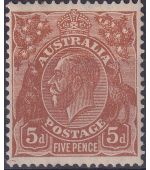Australia
In 1768, James Cook set out on a long voyage of exploration in the Pacific. He was the first to realize that New Holland was a continent, and on April 28, 1770, he landed at Botany Bay, just a few kilometers from present-day Sydney. There, he claimed the entire eastern coastline in the name of the British Crown and named it New South Wales. Following Cook's discoveries, England began to initiate its first projects for Australia. Meanwhile, another Englishman, Matthew Flinders, circumnavigated the country in 1803, demonstrating that New Holland was not made up of several islands but was a single landmass. Flinders is credited with naming the continent Australia, replacing the term New Holland, which had been imposed by the Dutch but was still in use, along with Terra Australis.
If you're looking for more details on this historical context, sources like the Australian Government's website or educational resources on early Australian exploration can provide additional insights.



